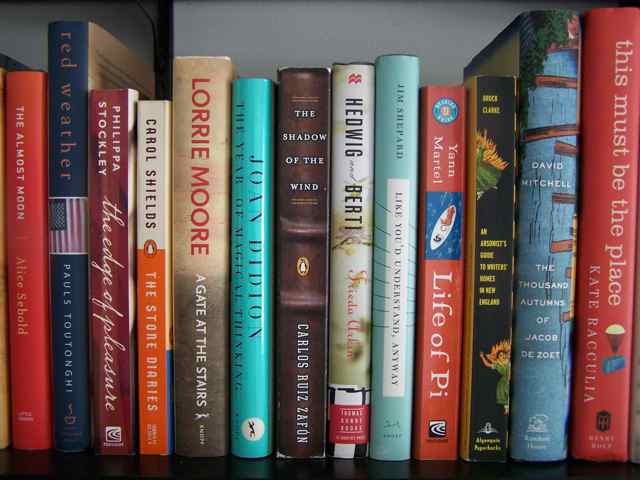 The Bones of Paris by Laurie R. King is a sequel to Touchstone. Now you know more than I did until I was about a third of the way into the book…
The Bones of Paris by Laurie R. King is a sequel to Touchstone. Now you know more than I did until I was about a third of the way into the book…
I understand why publishers don’t mention that a book is a sequel on book covers or in their descriptions, but I usually do my homework better and don’t end up reading books out of sequence too often. I’m a big fan of Laurie R. King’s Mary Russell and Sherlock Holmes novels, though, and thinking The Bones of Paris was a stand-alone, I requested it for review through LibraryThing while waiting for the next Mary Russell.
To cut to the chase, The Bones of Paris can be read on its own, without having read Touchstone first, but I don’t recommend it. I think I would have really liked this book a lot more if I had read it with the background from Touchstone. As it was, it took me a long time to feel as though I knew the main character, Harris Stuyvesant, a brawling American private investigator in 1929 Paris looking for a young woman from a Boston family who has gone missing while living la vie de Bohème. So even though the plot of Bones didn’t have a direct relation to the plot of Touchstone, and the author’s many references to Harris’ recent past clued me in on enough of the basics of Touchstone‘s plot to get by with, it took me a long time to care much about Harris, who was acting like a Hemingway-esque drinker, fighter, and womanizer. I would have felt more attachment to him and to the other characters from the earlier book when they eventually enter this story, if I had read Touchstone first.
OK, I think you get my point. Once you’ve read Touchstone, The Bones of Paris is a great follow-up that takes readers into Paris in the time of Sylvia Beach and Ernest Hemingway, diving deep into the life of Montparnasse artists and their American followers and the nightclubs and lurid Grand-Guignol playacting in Montmartre. After conferring with Paris police detective Emile Doucet, Harris begins to suspect one or more of the artists don’t find the posing of live models realistic enough for their shocking artwork and are taking matters into their own hands. Though not a connoisseur of modern art, Harris meets surrealist artists like Man Ray, Salvador Dali, and Didi Moreau, along with a Grand-Guignol theatrical producer and patron of the arts, Count Dominic Pierre-Marie Arnaud Christophe de Charmentier–known as Le Comte, in the course of his investigation.
The Bones of Paris is a suspenseful story, especially once Harris’ stalled investigation starts to take off. The setting is very well-described; the author makes you feel a part of the buzz of excitement of Paris at that time without overloading the book with history lessons. There are a lot of French phrases included, but if the translations aren’t obvious, the author translates. The Bones of Paris does tell a complete story and I enjoyed reading it, so it is reasonable, I guess, to call it a stand-alone. But still…
Here’s the description of Touchstone from the author’s Web site:
A touchstone is used to test the purity of precious metals. A man with such a test can control the value of gold. How much more could be controlled by a man with a human touchstone?
It’s eight years after the Great War shattered Bennett Grey’s life, leaving him with an excruciating sensitivity to the potential of human violence, and making social contact all but impossible. Once studied by British intelligence for his unique abilities, Grey has withdrawn from a rapidly changing world–until an American Bureau of Investigation agent comes to investigate for himself Grey’s potential as a weapon in a vicious new kind of warfare. Agent Harris Stuyvesant desperately need Grey’s help entering a world where the rich and the radical exist side-by-side—a heady mix of the powerful and the celebrated, among whom lurks an enemy ready to strike a deadly blow at democracy on both sides of the Atlantic.
Here, among a titled family whose servants dress in whimsical costumes and whose daughter conducts an open affair with a man who wants to bring down the government, Stuyvesant finds himself dangerously seduced by one woman and—even more dangerously—falling in love with another. And as he sifts through secrets divulged and kept, he uncovers the target of a horrifying conspiracy, and wonders if he can trust his touchstone, Grey, to reveal the most dangerous player of all…
The Bones of Paris
King, Laurie R.
Bantam Books
Sept. 10, 2013
978-0-345-53176-6
432 pp., hard.
$26.00 US/ $30.00 CAN
Disclosure: I received a free copy of The Bones of Paris through the LibraryThing Early Reviewers program.
Other opinions on The Bones of Paris (all excellent, and more timely than my own):
Giraffe Days
Popcorn Reads
Words and Peace
a
